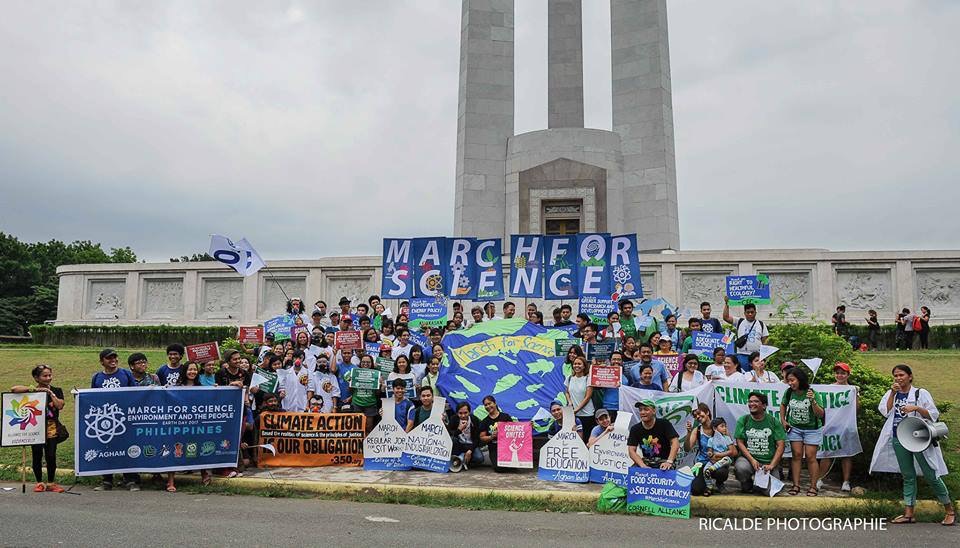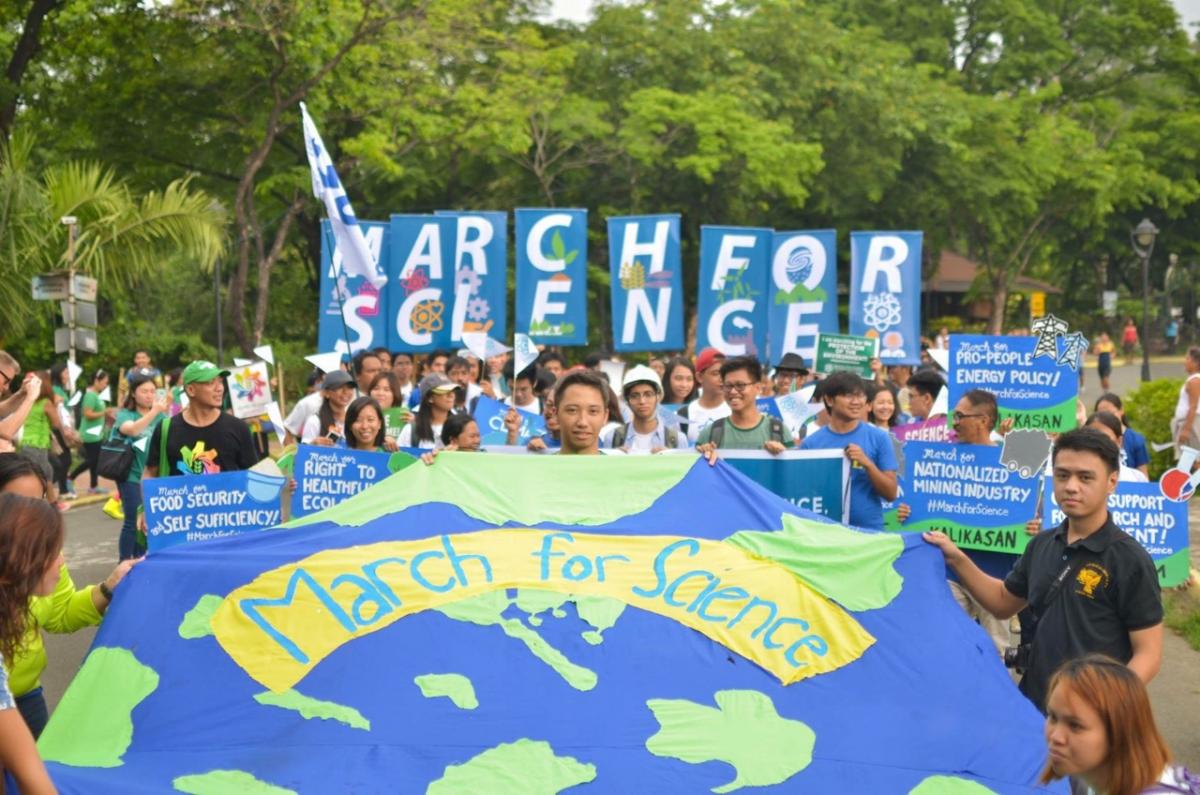Close to 1,000 people gathered in a festive and jovial mood right in the very heart of the Philippine capital city, the iconic Quezon Memorial Circle, to rally support for the historic April 22 March for Science.
A 30-minute morning fitness session dubbed “Zumba para sa Siyensiya” (Zumba for Science) was held during the registration to energize the marchers and kick off the hour-long march along the 2-kilometer Elliptical Road circumscribing the national monument.
Coinciding with the celebration of Earth Day 2017, the first ever March of Science PH brought together hundreds of science advocates, mostly university students, environmental groups, scientists, engineers, contractual workers, youth organizations, social activists, women’s organizations, fitness enthusiasts, wellness groups, farmers, foreign observers, laborers, and non-government organizations for clamoring the government to adopt science-based solutions to the country’s problems.
Marchers came from all walks of life, across different sectors of the society, transcending barriers of religion, social status, gender, age, and religious beliefs, to unite in their call for the government and policy makers to enact scientific and evidence-based decisions.
The Cornell Alliance for Science was one of the participating organizations in the March for Science, Environment, and the People, which was organized by AGHAM, an organization of patriotic pro-people science and technology advocates.
The Cornell Alliance for Science advanced the issue of ensuring food security and self-sufficiency through the responsible use of modern biotechnology.
AGHAM Secretary General Feny Cosico, the march’s head organizer, explained that it is the responsibility of Filipino scientists to show the context of science and technology in the country.
Cosico urged the scientists who joined the march to push for pro-people and pro-environment science and technology that is geared towards national development.
Another prominent supporter of the March for Science PH was Dr. William Dar, former Secretary of the Department of Agriculture and ICRISAT Director General.
“Science is key in ensuring food and nutritional security in every country,” said Dar, a world-renowned Filipino scientist and eminent agriculturist.
“The role of biotechnology is crucial in increasing agricultural productivity and ensuring attainment of food security in most countries in the world,” Dar continued. The Philippine government must consider a higher level of investment in terms of supporting more relevant research on biotechnology, including the up-scaling and commercialization of relevant technologies.
In the United States, science agencies are facing deep budget cuts, while the same if not worse is happening in the Philippines, which has long been suffering a worsening neglect, said Clemente Bautista, national coordinator of Kalikasan People’s Network for the Environment, an environment activist group.
He noted that public spending for scientific research and development remains pegged at just 0.14 percent of the Philippine GDP. The global standard is 2 percent. He lamented that public spending on environment-related R & D is just a little over a tenth of that minuscule amount, representing 0.14 percent of the Philippine GDP. The latest data from the Department of Science and Technology showed it spent only P$537.78 million of the P$4.73 billion total in public research and development spending.
Prominent personalities, such as award winning broadcaster and Pinoy scientist Dr. Custer Deocaris of the Commission on Higher Education and Bayan Muna Party List Representative Carlos Isagani Zarate, graced the event.
Celebrity journalist Atom Araullo also posted an invitation to his 1,682,214 Twitter followers to attend the march.
Marlo Asis is a 2015 Alliance for Science Global Leadership Fellow.


